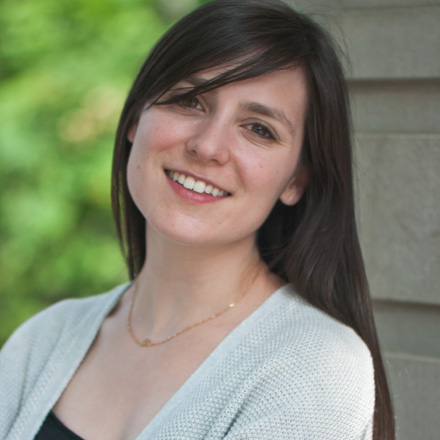 Tweet
Tweet
Featured on Oct 27, 2011
Bianca Bosker
"The monosyllable of the clock is loss, loss, loss unless you devote your heart to its opposition. - Tennessee Williams"
Bio:
Bianca Bosker is the Senior Tech Editor at The Huffington Post.
She oversees and reports for The Huffington Post's Tech section, which she helped launch in 2009. She writes about the ways technology is reshaping how we work, live and play, with a focus on Internet companies both large and small and consumer tech. She launched HuffPost's Women in Tech series, which has featured profiles of female pioneers such as Marissa Mayer and Ruchi Sanghvi, Facebook's first female engineer.
Her work has appeared in publications including the Wall Street Journal, Fast Company, Far Eastern Economic Review, and the Oregonian.
She is the co-author of a book on the cultural history of bowling entitled Bowled Over: A Roll Down Memory Lane and at work on her second book, which examines China's growing number of themed housing developments that recreate Western landscapes, from Paris to Orange County. She grew up in Portland, Oregon and graduated from Princeton University.
- Title: Senior Tech Editor, The Huffington Post
- Age: 25
- Location: Flatiron District
- Contact: @bbosker
What are some of the challenges that you run into at The Huffington Post as the Senior Tech Editor?
There are never enough hours in a day. I find myself waging a constant war against the clock to cover everything that interests me and cover it well. The creativity and breakneck speed of this industry is what makes writing about tech such a thrill— But given the constant stream of new companies and ideas, there is always more I want to write about and cover than I can realistically take on.
Another big challenge is answering friends’ questions about the next generation Apple anything. I’d say I hear “When’s the iPad 3 coming out?” about as often as “How are you?” Seeing into the future is tough, but someone’s got to try.
What’s your current favorite technology gadget?
My iPhone keeps me functioning but my iPad is all fun. It’s the ultimate boredom buster and it satisfies my compulsion to constantly be connected. My guilty pleasure is watching TV shows on my iPad while I brush my teeth (try it sometime) and video chatting on the iPad has changed my life—it’s far more intimate than with a PC or phone. My 100 year-old grandmother and I regularly use our iPads to Skype with each other.
My current favorite non-tech gadget is the mandolin, which I’ve been using to make vegetable lasagna and a delicious salad I discovered at Al di La.
You graduated from Princeton with a degree in East Asian Studies. If you had the choice to do it over again, would you change what you majored in while in school?
Not a chance! It was punishing at times – I spent a summer in Beijing learning Chinese during which I was forbidden from speaking English -- but I loved every minute of my studies. Waking up for daily 8AM Chinese drill sessions was also good preparation for working at HuffPost, where our days start early in the morning, and the challenges of doing research in China teaches you to become relentless in tracking down sources and getting people to talk to you. My undergraduate major also afforded me some once-in-a-lifetime travel experiences, like taking a 12-hour sleeper train from Beijing to Inner Mongolia and galloping horseback across grasslands outside of Hohhot.
You mention that your second book will examine China’s growing number of themed housing developments that recreate Western landscapes. How did you come up with the idea for the book?
During a summer trip to Shanghai, I came across an urban development project, spearheaded by the local government, that set out to build ten satellite cities around Shanghai’s city center, each in the architectural style of a different European country. The British-themed one, for example, featured a brick-for-brick replica of an English chapel and security guards dressed in the uniforms of the Queen’s foot guards.
I was floored that no one had explored what gave rise to these gotta-see-it-to-believe-it communities and the more I looked into them the more I found: Eiffel towers in Hangzhou, Venetian palazzos in Pinghu, Versailles palaces in Beijing.
These are living, breathing neighborhoods designed to replicate foreign cities where people in China now raise their children, cook their meals and go about their daily routines. Many of the Western architects and experts I spoke with dismissed these developments as kitsch, but there was real demand for these homes in China, so I set out to find out why.